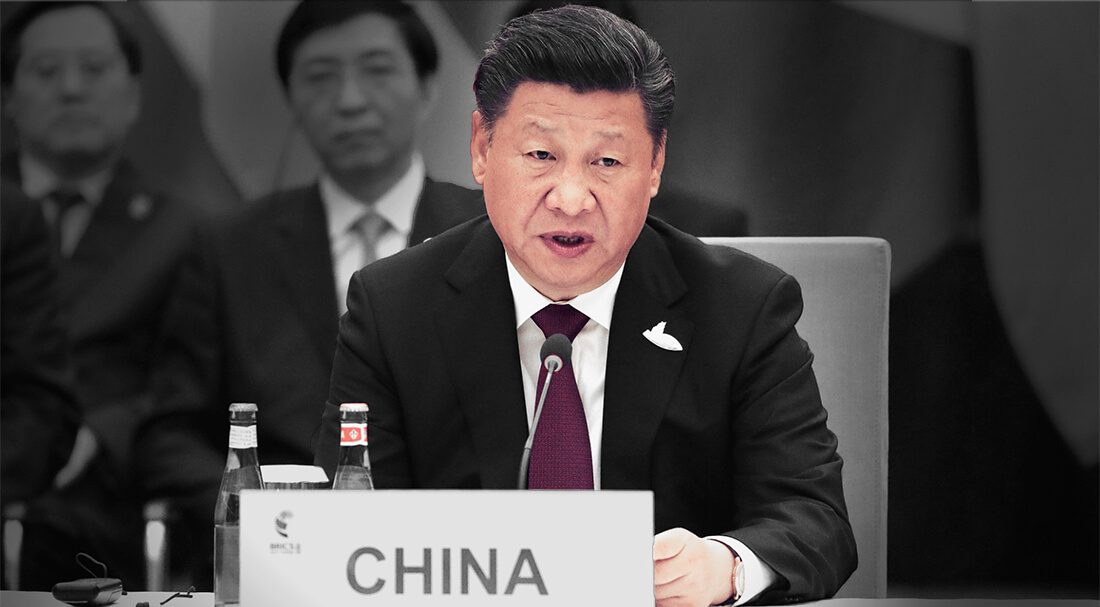 China desperately needs to find a way out of its political conundrum before it’s too late – for all involved, writes Charles Burton.
China desperately needs to find a way out of its political conundrum before it’s too late – for all involved, writes Charles Burton.
By Charles Burton, August 14, 2019
While the Hong Kong showdown continues to deteriorate in clouds of tear gas, hundreds of arrests and increasingly dark rhetoric out of Beijing, the Chinese Communist Party senior leadership has relocated to the seaside town of Beidaihe, 200 kilometres east of Beijing, for their summer retreat.
A party tradition since the 1950s, this is not simply two weeks of sun, sand and sea-bathing with the bodyguards. It is also about political factional posturing in secretive preparation for this fall’s policy debates. There will be a lot of politicking by the beach, as party General-Secretary Xi Jinping strives to reinforce the critical support he needs from the party and military elders, and to stave off any challenges to his authority over the next year.
But things may not go as smoothly as in past retreats. Among the elders attending Beidaihe is former strongman Jiang Zemin. At 92, Mr. Jiang is the patriarch of a significant faction of senior officials who have been severely discomfited by Mr. Xi’s purges, anti-corruption investigations and administrative restructuring to centralize party authority in his own office.
Now that China’s economy and foreign relations are in major turbulence, Mr. Xi is left holding the bag. Much of the problem stems from his attempts to turn back Deng Xiaoping’s legacy of politically accountable collective leadership and undo Mr. Deng’s program of openness to the outside world and market-based economic reform.
It is the betrayal of Mr. Deng’s commitment to 50 years of “one country, two systems” that is the source of Hong Kong’s unrest. China’s propaganda blames the United States as the “black hand” behind the protests, specifically accusing junior diplomat Julie Eadeh, a “trained subversion expert at the U.S. consulate in Hong Kong,” of directing the whole thing. Besides being petty and ridiculous, it is appallingly disgraceful of China’s party-controlled press to openly name Ms. Eadeh’s spouse and two children – apparently an open invitation for the People’s Republic of China’s triad thug supporters to menace the family.
Mr. Xi’s mismanagement of the Hong Kong file strengthens the momentum of Taiwan’s pro-independence regime, seriously compounding the failure of Mr. Xi’s leadership in the eyes of Chinese nationalists who yearn for Taiwan’s reunification with the motherland.
He has aggressively asserted China’s goal to overtake the United States as the global military and political hegemon by 2050, using the Belt and Road Initiative to reorient the world’s economy toward Beijing. This determination is evidenced by shameless flaunting of accepted norms of trade and diplomacy. It is not just Canada that has been outraged by the arbitrary detainment of Michael Kovrig and Michael Spavor, and China’s retaliatory banning of Canadian agricultural products on spurious grounds. In recent years, the Philippines, Japan, Norway, France and South Korea have all had comparable trade and consular pressures put on them for similar political reasons.
But now China’s geostrategic boldness has started to backfire, with a kick back from the United States unifying Republicans and Democrats alike against “the China threat.” The U.S.-China trade war is leading manufacturers with operations in China to pull up stakes and move to locations such as Vietnam, to avoid U.S. tariffs. Moreover, China’s plans to dominate and potentially control global telecommunications infrastructure through its telecom giant Huawei have now been shattered by U.S. opposition.
China’s economy – already unsteady due to pervasive corruption, as well as by overextended banks with too many bad loans on their books – now faces a crisis of business confidence and economic decline. Mr. Xi is unable to respond to U.S. demands that trade relations be fair, honest and reciprocal, lest he alienate too many of the Communist Party elites who ultimately sustain his grip on power.
Perhaps Mr. Xi has done the world a favour by exposing the true nature of the Communist Party’s long-range intentions, but as American commentator Gordon Chang has observed, ultimately his is “a militant, one-person regime that feels surrounded and threatened.”
A “surrounded and threatened” China feeling under siege does not bode well for making a rational conciliatory response to Hong Kong’s unrest. It also does not bode well for the future of Canada-China relations or for global peace. China desperately needs to find a way out of its political conundrum before it’s too late – for all involved.
Charles Burton is associate professor of political science at Brock University at St. Catharines, Ont., senior fellow at the Macdonald-Laurier Institute’s Centre for Advancing Canada’s Interests Abroad, and former counsellor at the Canadian embassy in Beijing.




